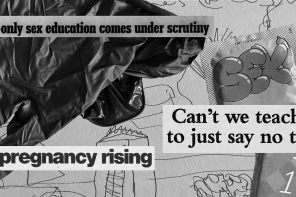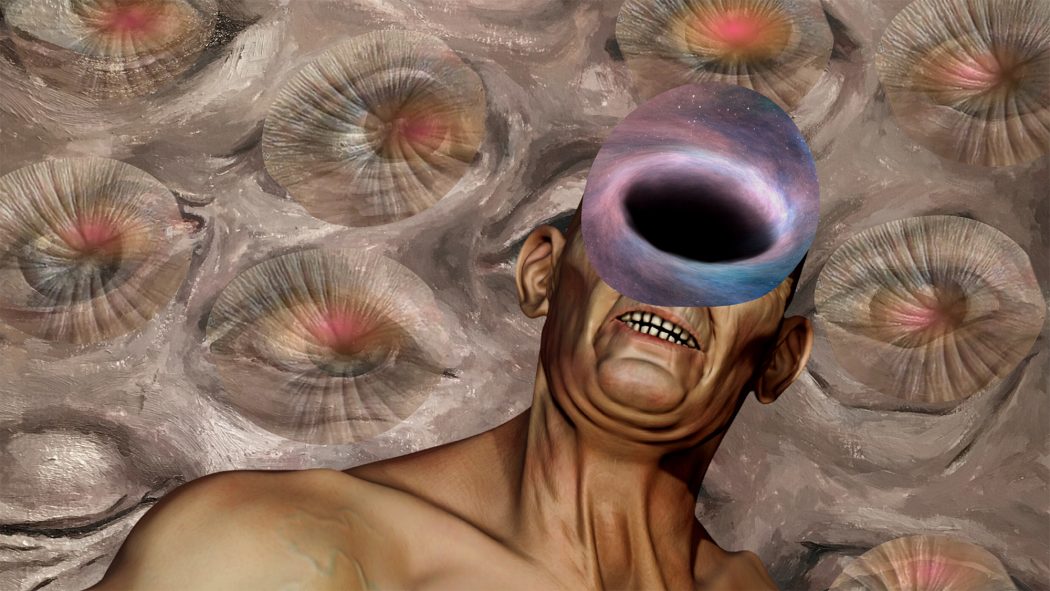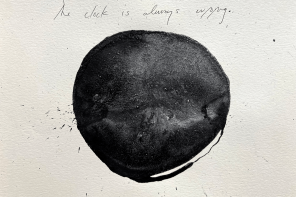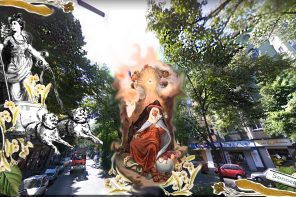Audio transcription:
Pluto is the deity of the underworld, the planet of raw power, obsession and control, organized violence, reversals, and foundational transformations. In astrology, the Pluto return is the moment when the planet comes back to the exact position it was in at the moment of birth – a process that takes about 225 years. Nations and empires that last to their Pluto return are so changed by their encounter with the ruler of Hades, that by the end of it they are no longer recognizable; their shadow side reemerges and drags the old order into the depths. The Roman empire’s first Pluto return (216-223) encompassed the rule of Elagabulus, a ruler so decadent and solipsistic that the Augustan Histories claim he hosted a dinner party where he dropped so many flower petals from the ceiling that it literally smothered his guests to death. The following rulers were unable to fully restore order and the empire devolved into fragmentary government, economic mayhem, and civil wars. The lead up to their second return of 461-469 saw Rome invaded by the Vandals, foreshadowing the total collapse of the empire a short time later. The British Empire’s Pluto return of 1555-1562 marked the initiation of their slave trade, as well as the economic boom directly fueled by that violence. The following return (1801-1810) is a reckoning with the previous one; due in large part to uprisings and resistance from both maroon communities and enslaved people, the British formally abolished the trade and sale of enslaved people in the empire.
Enthralled by the capitalist myth of infinite growth, our rulers have convinced themselves that if they can more completely control and predict human behavior their reign will never end. The terrifying reality is that the age of mass data collection, algorithmic social sorting, and totalitarian surveillance has brought about a society in which meaningful dissent is nearly impossible. The real endgame of mass data collection and mass surveillance is not only to predict our future behavior but to determine it: to eliminate free will and produce predictable subjects. The practices of mass data collection are like a form of inverted divination. The ambition of big data is to invent and then fabricate the future by collecting huge quantities of information about the unconscious patterns of human activity and using algorithms to tilt us towards corporate-friendly behavioral norms – a process that solidifies the “information bubbles” that already hem us into a kind of digital feudalism.
To put it simply: rather than constructing a predictive system for the purpose of social control, the Empire is constructing predictable subjects to achieve the same totalitarian end. They will be able to predict the future because they will be the authors of this future – the gods themselves.
It’s peculiar that the ubiquity of this kind of state divination is rarely discussed in connection with the rising interest in occult practices, but this political dimension provides compelling context. To me, our fixation with divination is both a framework to understand and a tool to resist the use of big data to predict and control human behavior. Astrology in particular is brilliantly suited for this task because of its unique ability to articulate the experience of living within structural limitations that are beyond our control (namely the ever-increasing management of our everyday lives by the state, corporations, and their mysterious algorithms), while simultaneously instilling a profound hope in the eventual collapse of these structures founded in the apparent inevitability of cycles of change. The United States can’t evade it’s Pluto return any more than I can avoid my credit score. Despite the veneer of scientific objectivity, proponents of big data—bankers, politicians, technocrats, entrepreneurs, police chiefs, and spy agencies—should be seen as no more than astral priests in business suits. At the same time, actual astrologers, mystics, witches, and sorceresses have the opportunity to play a unique role in the battle for the future; we can harness the power of prescience and our cosmic perspective to envision a horizon beyond capitalism.
I’m not the first to make the assertion that the cult of big data has become a religion. In her book Weapons of Math Destruction, former hedge fund mathematician turned big data critic Cathy O’Neil says this explicitly, “The math-powered applications powering the data economy were based on choices made by fallible human beings […] many of these models encoded human prejudice, misunderstanding, and bias into the software systems that increasingly manage our lives. Like gods these mathematical models were opaque, their workings invisible to all but the high priests in their domain: mathematicians and computer scientists. Their verdicts, even when wrong or harmful, were beyond dispute or appeal. And they tended to punish the poor and most oppressed in our society, while making the rich even richer.”
Economists, politicians, and other evangelists for mass data and algorithmic social control pretend to be secular realists. It seems healthier, and more true to reality, to describe them as priests for the religion of capitalism, trying to shape society in the image of their god, the free market. Mainstream economics already operates this way, deferring all judgment to the “logic of the market.” Forget morality or altruism; whatever is good for the stock market is good for society. Even the notion of the “Invisible Hand of the Market,” coined by Adam Smith, was literally supposed to be the hand of God; he invented the phrase to describe how the market acts as an impartial enforcer of God’s law, rewarding the pious and punishing sinners (shocker: the sinners are poor people). The stock market itself is a giant algorithm running calculations that nearly no one understands, which almost flawlessly benefits the already rich and the already powerful. Algorithms present a veneer of scientific objectivity to obscure the power players standing behind the Wizard of Oz.
If we understand fate as the boundary where our free will stops, it makes sense that my generation (the Saturn in Capricorn crew) and the younger generations (those with Saturn in Aquarius and Pisces for example) would become fascinated with all things magical and divinatory, particularly astrology. We understand the systemic nature of social control and have been raised with nothing but evidence that our free will is obstructed by the structural realities of the tightly controlled systems in which we live. Couldn’t this be understood as a kind of fate? No wonder we find it easy to accept the notion that there are great cosmic forces beyond our control, dynamically altering our experience of the world and mediating our relationships with each other, our environment, and ourselves.
Like the planets in our solar system and their movement around the Sun, anything repetitive enough and far enough away becomes readily predictable. The project of big data is to take the sporadic behavior of individuals and collectivize them into a great mass, a planet moving along a predictable rotation rather than a flock of birds scattering and wildly surging. The name Mass Data is so apt because it expresses the gravity of those collections. Those who seek to control human society may not yet be able to produce a single monolithic planet encompassing all of us and all of our behaviors, but I’m afraid with time we may all fall in line, fall into orbit, and the priests of big data will only have to calculate our next ingress to avert a revolution or to eradicate our desire for emancipatory disruption—for freedom.
But astrology gives me hope. While big data divination is based on reducing chance and enforcing conformity, astrological prediction depends on indeterminacy; the boundary of human control and understanding is precisely where the divine slips in. Astrological prediction is an intuitive art, not a science—and in this case that’s a very good thing. By becoming attentive to invisible but palpable cycles of planetary time, we open ourselves to synchronicities and occurrences that are powerful because they are not in our control or that of any other person or organization.
We are mostly conditioned to think of time and history as a forward progression rather than a series of interlocking cycles, but the later conception can be more freeing if we don’t experience the present as a superior, evolved culmination of all the reforms of our past. The world we live in fucking sucks! The notion that there are forces more powerful than the false gods of capitalism—forces we have the language of astrology to understand and even communicate with—is profoundly empowering for those of us who do not have socio-political power here on earth. This would certainly help to account for astrology’s disproportionate popularity among those who are oppressed in American society: women, the disabled, the sick, BIPOC, queers, pretty much everyone except rich, white, straight, cis, able-bodied, neurotypical men.
In his essay “Galactic Democracy,” art critic and theorist Stephen Wright talks about how the belief in a strictly material reality held by many on the left actually has a dampening effect on any revolutionary projects we attempt. He suggests that our emerging fixation on the stars arises partly from “the progressive acknowledgement of our need for a transcendent horizon, and conversely of the extreme powerlessness that comes from yielding any and all transcendent initiative to the adversary.” Richard Tarnas makes an almost identical argument in Cosmos and Psyche, “since the encompassing cosmological context in which all human activity takes place has eliminated any enduring ground of transcendent values— spiritual, moral, aesthetic — the resulting vacuum has empowered the reductive values of the market and the mass media to colonize the collective human imagination and drain it of all depth.” It’s not enough to focus on logistical reforms. As collectives like Black Quantum Futurism are showing, self-determination depends on breaking free from the entire white capitalist cosmology, which cannot be accomplished by ignoring the reality of metaphysical domination.
In my experience, astrology is one paradigm that can enable us to deprogram our minds from both the old dogmas of institutional religion and the new gods of the market. Those of us who have spent enough time with astrology know how powerful it is to realize that there is something actually magical, completely beyond our understanding, that makes possible the jaw-dropping correlations between human activity and the cosmos. This kind of self-contained authority born of our direct experience of something greater than our limited mass culture, politics, and society, is in itself liberating. Astrology can allow us to see beyond the pathetic materialism we’re acculturated to. What better than real oracles with visions of a radical future to reveal the emptiness of shallow corporate conjurors? Having access to an alternative, shockingly accurate map of time can make waiting for change more bearable. At the same time we shouldn’t underestimate its strategic value in directly combating state and corporate control (for example, literally choosing the best moment to strike). The priests of mass data may think they have imprisoned us in a labyrinth of algorithms, that they are writing the code in our heads. But we don’t believe in them any more than they believe in astrology. Thankfully our predictions are real and we know their empire is falling.
Joey Cannizzaro is an undisciplinary artist and astrologer. Along with Dan Bustillo, they formed The Best Friend’s Learning Gang, an experiment in disorderly, amateur education. They’re currently part of Party Office, a trans* feminist, anti-caste, anti-racist art and social space. Joey curated the inaugural show at MOCAM: The Museum of Contemporary Art on the Moon, as well as two seasons of Studio, an emerging artist showcase at REDCAT in Los Angeles. Their work has been seen at The Hammer Museum, 356 Mission, Machine Project, UMoCA, Flux Factory, FOCA LA and a lot of other places. They’ve also performed at Centre Pompidou, REDCAT, HAU2, and in the back of moving Honda Odyssey on Echo Park Boulevard. You can read some words they wrote in The Brooklyn Rail, Temporary Art Review, OnCurating, Black Clock Blog, and in paper books. They have an MFA from California Institute of the Arts, and a BA from The New School University. Joey’s ambient noise album THICKET was released in July, 2021.
Instagram: https://www.instagram.com/blimpsecretions/?hl=en
Website: http://joeycannizzaro.weebly.com/


















